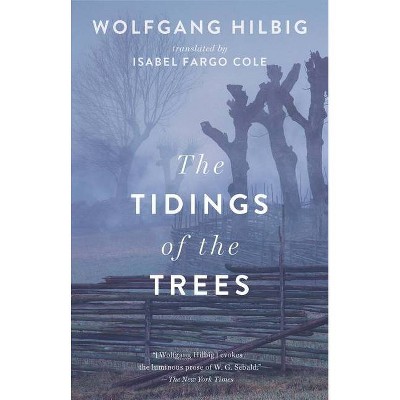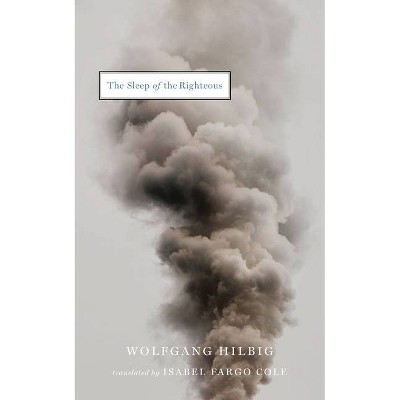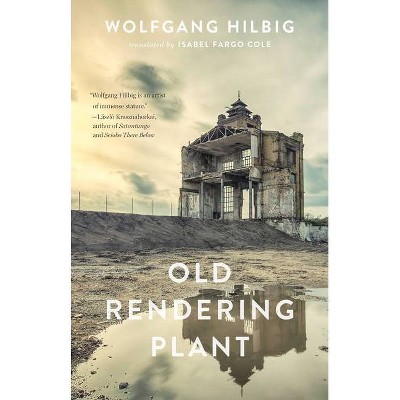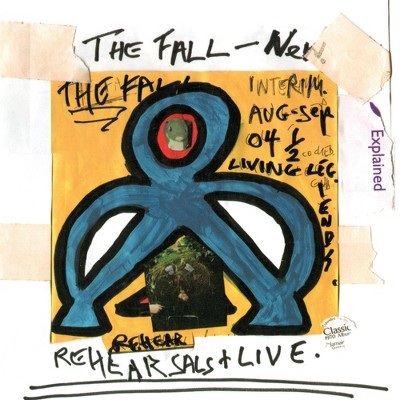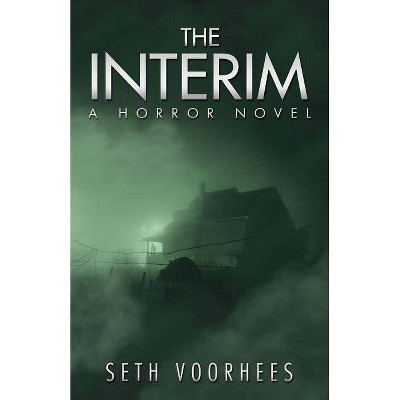The Interim - by Wolfgang Hilbig (Hardcover)
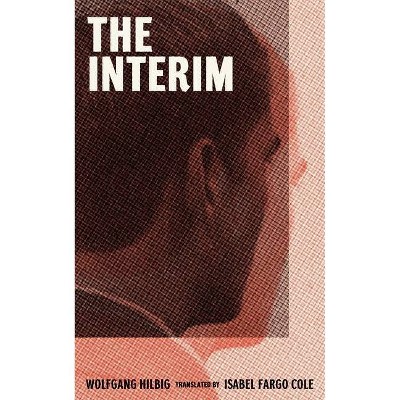
Similar Products
Products of same category from the store
AllProduct info
<p/><br></br><p><b> About the Book </b></p></br></br>From a writer whose work is considered "among the most significant prose and poetry written not just in the GDR but in all of postwar Germany" (Joshua Cohen), a digressive masterwork in the tradition of Heinrich Böll, Imre Kértesz, and Dasa Drndic that interrogates lust, God, statelessness, addiction, capitalism, and above all else the writer's place in "a century of lies."<p/><br></br><p><b> Book Synopsis </b></p></br></br><p><b>"Comic and terrifying and profound." --Rachel Kushner, <em>The Guardian</em> (Best Books 2021)</b></p><p>C. is a wretched grump, an anguished patron of bars, brothels, and train stations. He is also an acclaimed East German writer. Dogged by writer's block, remorse, and national guilt in the years before the fall of the Berlin Wall, he leaves the monochromatic existence of the GDR for the neon excess of the West. There at least the novelty of his origins grant him easy money and minor celebrity, if also a deflating sense of complacency. With his visa expired and several relationships hanging in the balance, C. travels back and forth, mentally and physically, between two Germanys, contemplating diverging visions of the world and what they mean for people like him: alienated and aimless witnesses to history.</p> <p>This monumental novel from one of the greatest chroniclers of postwar Germany, masterfully translated by Isabel Fargo Cole, interrogates with bitter wit and singular brilliance the detritus of twentieth-century life: addiction, consumerism, God, pay-per-view pornography, selfishness, statelessness, and above all else, the writer's place in a "century of lies."</p><p/><br></br><p><b> Review Quotes </b></p></br></br><br><p>"Comic and terrifying and profound." <b>--Rachel Kushner, <em>The Guardian</em></b></p> <p>"Translated into supple, vivid English by Isabel Fargo Cole... [Hilbig's] C. takes bitter pride in being a writer, an identity he feels the authorities long tried to deny him..." <b>--<em>The New York Times</em></b></p><p>"Rich in references to the German Romantic traditions of Ludwig Tieck and E.T.A. Hoffmann, Hilbig's writing has also been compared with the Gothic style of Poe. In many ways, his meandering sentences and attention to the thick mist of consciousness resemble the voice of Thomas Bernhard, though charged with a metaphysician's sense for the peculiar details of materials--his novels are littered with objects and landscapes that seem to have their own autonomous lives..... Further translations of [Hilbig's] work will doubtless continue to light up our understanding of this great artist, a writer who shaped his life and work in the tradition of the grandest of pessimisms." <b>--Charles Prusik, <em>Hopscotch Translation</em></b></p><p>"This is a superb portrait of a writer who has totally lost his way. ...[The Interim] may well be Hilbig's masterpiece." <b>--<em>The Modern Novel</em></b><p>"[The narrator] C's 'depressive inertia' generates a recursive tale, pivoting between drink, aimless travel, and abandonments. But in one sense, The Interim really isn't about C. at all, but rather about the underlying psyche telling this story, a mind absorbed by--and in the grip of--the grim and grimy details of C.'s peripatetic days." <b>--Ron Slate, <em>On the Seawall</em></b></p></p><p>"Unexpectedly gripping--an unconventional inquiry into one man's morals and sense of home....A searing trip into the recent past and into one man's inner landscape." <b>--<em>Kirkus Reviews</em> (starred review)</b></p><p>"This engrossing work from the late Hilbig continues the author's dedication to narratives of life in a divided Germany...a wily tale, smartly told." <b>--<em>Publishers Weekly</b></em></p><p>"Bilious and bleakly funny, <em>The Interim</em> is narrated by a drunken writer who is lost between East and West in 1980's Germany, riding trains that never seem to take him to where he wants to be. He has one foot out of the door of the decaying German Democratic Republic, but he feels like an alien among the department stores and porno theaters of the capitalist West. Hilbig is one of the essential voices of the Cold War, and deserves to be as well known in the Anglophone world as Thomas Bernhard or Günter Grass. In <em>The Interim</em> he captures the despair and disorientation of a generation of German intellectuals who found themselves without a side to join." <b>--Hari Kunzru, author of <em>Red Pill</em></b></p><p>"Ideal for our fractured times, Wolfgang Hilbig's <em>The Interim</em> walks the tightrope of unknowing, from East to West Berlin and back again. From dispossession and displacement to capitalism and communism, Hilbig's antihero is all of us, a stranger adrift in the modern world. Wolfgang Hilbig was a visionary, each of his novels awash in prophecy." <b>--Mark Haber, author of <em>Reinhardt's Garden</em></b> </p> <p>"Hilbig's was among the most significant prose and poetry written not just in the GDR but in all of postwar Germany--East or West." <b>--Joshua Cohen, author of <em>Book of Numbers</em></b></p> <p> "-Evokes the luminous prose of W.G. Sebald." <b>--<em>The New York Times</em></b> </p> <p>"[Hilbig writes as] Edgar Allan Poe could have written if he had been born in Communist East Germany." <b>--<em>Los Angeles Review of Books</em></b></p> <p> "Wolfgang Hilbig is an artist of immense stature." <b>--László Krasznahorkai, author of <em>Baron Wenckheim's Homecoming</em> and <em>Satantango</em></b> </p> <p>"[Hilbig] could very well be the writer for our time." <b>--<em>Boston Review</em></b> </p> <p>"Whenever I read Hilbig's books . . . I am profoundly shaken. This language practically slices me open." <b>--Clemens Meyer, author of <em>Bricks and Mortar</em></b><br>
Price History
Cheapest price in the interval: 22.95 on November 8, 2021
Most expensive price in the interval: 22.95 on December 20, 2021
Price Archive shows prices from various stores, lets you see history and find the cheapest. There is no actual sale on the website. For all support, inquiry and suggestion messages communication@pricearchive.us

